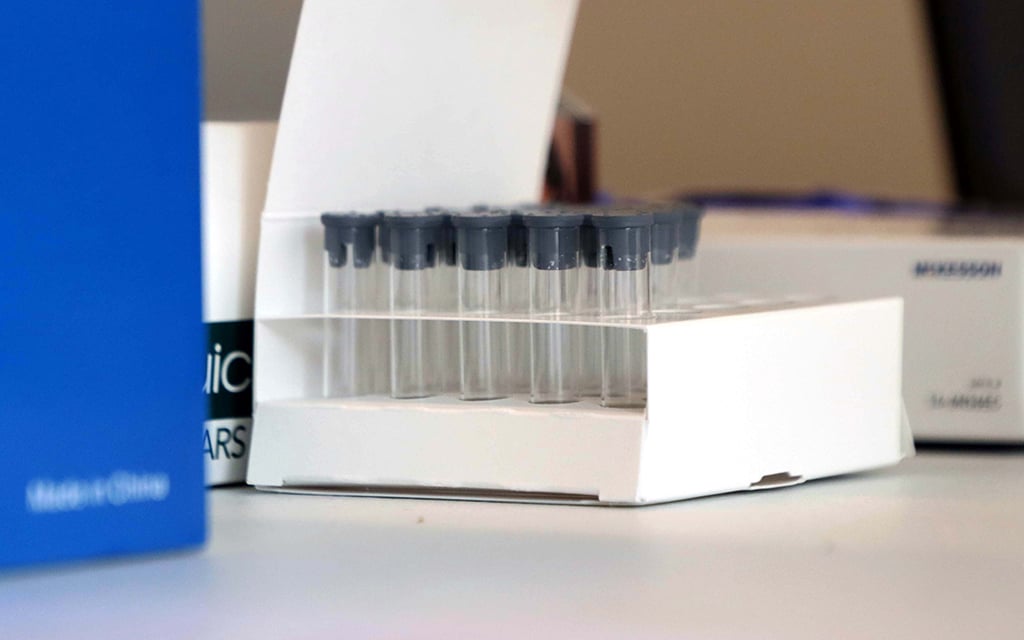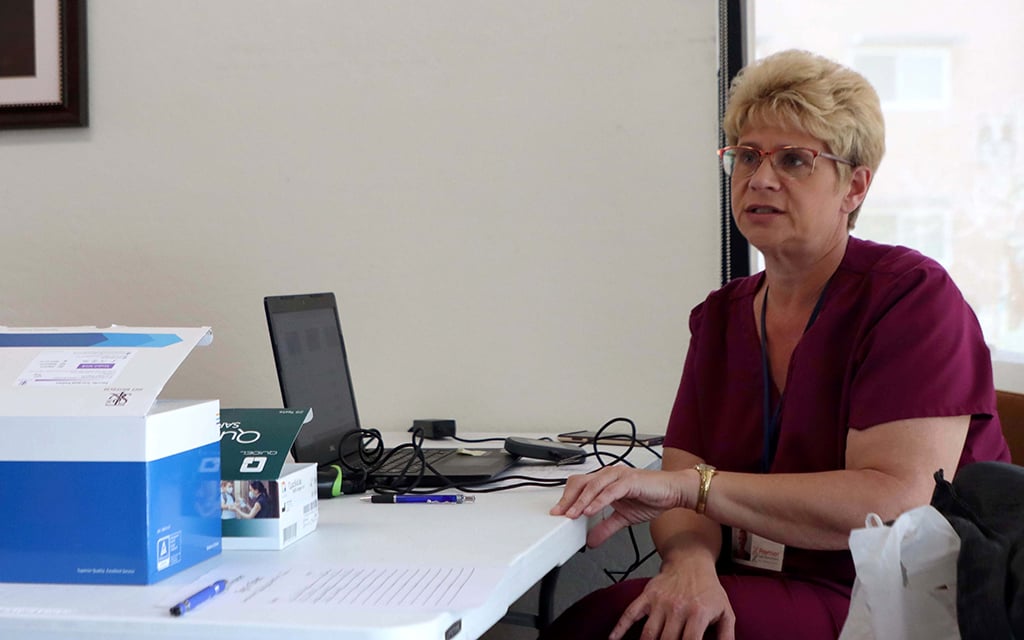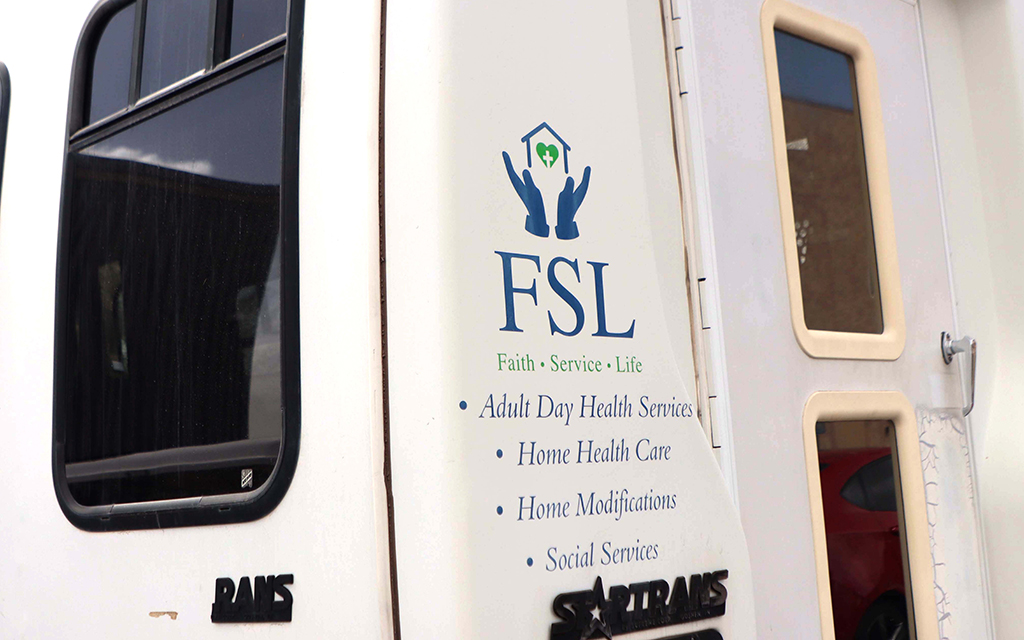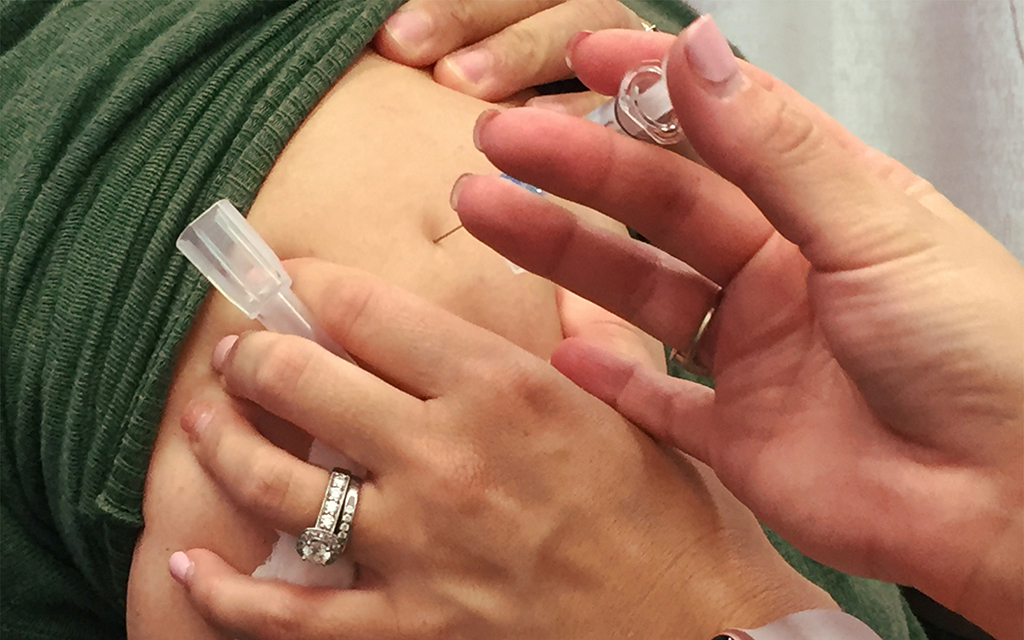ADHS delivers vaccines, COVID-19 tests to underserved communities

[ad_1]

Sample tubes for COVID-19 testing are lined up at a Foundation for Senior Living facility in Phoenix on March 1, 2023. (Photo by Paula Soria/Cronkite News)
PHOENIX – Even as COVID-19 levels decline, the Arizona health department continues to deliver tests, vaccinations and other medical services to underserved, low-income communities across the state, according to health-equity officials.
Mobile vans, pop-up neighborhood clinics and even in-home services are ways to take health needs to communities where people don’t have access to services or can’t afford them, state health officials said of the continuing effort. Workers travel all over and end up in different environments; sometimes they may even end up at a potluck.
“Migrant communities in border towns, Arizona tribes, including urban Indigenous communities, events at a number of faith-based communities, seniors and older adult communities, including in long-term and skilled nursing home settings,” have received COVID-19 vaccines, said Jessie Barbosa, the vaccine equity manager at the Arizona Department of Health Services.
The clinics try to address a gap in who gets vaccines and tests, with vulnerable and underserved communities disproportionately affected during the height of the pandemic in 2020. The Centers for Disease Control and Prevention also says people 65 and older are at higher risk for illness and death. A February study of disparities in Arizona found mixed results on how racial and ethnic populations fare now.
Advocates say medical-mobile programs offer convenience to people who have less access to health care – from doctors to hospitals to clinics close to home – and don’t own a car or don’t have efficient mass transit nearby in order to get help. It is also a temporary fix, available at specific times and places.
Across the country, about 3,000 mobile medical units travel to neighborhoods throughout the U.S., according to Mollie Willams, executive director of the Mobile Health Map, which provides a database where mobile clinics all over the country can post their information. Clinic operators can sign up and post data they have collected, such as funding, the type of medical care provided and the populations they serve, from veterans to LGBTQ people.
“Our goal in mobile health maps is to help those clinics measure and communicate their impact,” Williams said. “Mobile clinics really have an operating opportunity to get to people before they get sick and to promote health.”
She said operators of the van, based at the organization’s headquarters in Boston, have revealed patients’ health problems – clients who came in not knowing anything was wrong and then ended up at the hospital.

Declina Clay, with Premier Lab Solutions, helps with mobile COVID-19 testing on March 1, 2023, in Phoenix. (Photo by Paula Soria/Cronkite News)
Helping anyone who needs help
Siman Qaasim, a health-equity administrator for the state, said services are for everyone, including unhoused and incarcerated Arizona residents.
“Who we decided to center in the program are folks who just can’t walk into Walgreens and spend $15 to $20 for a take-home test,” Qaasim said.
For other Arizona residents who need a vaccination or test, “We definitely will help them access testing or vaccinations at a pharmacy partner or at a clinic near them,” Barbosa said. People can check the website for a tool to find vaccination and test sites.
Organizations can email and to request the pop-up clinics, and an ADHS task force sets up contracts with organizations, such as the Foundation for Senior Living, which provides senior housing and programs.
Taking COVID-19 testing to a seniors potluck
Victoria Olivas, resident-service coordinator for the foundation’s assisted-living facility in south Phoenix, walked around and talked to residents one day in February.
She and residents chatted as neighbors from around the campus walked in with cornbread, chicken, cookies and cake. In the same room, rows of COVID-19 tests were set up in the corner, near long tables piled with food. It was potluck time.
Pairing a potluck with possible testing seemed like an opportunity.
“Right now we have COVID testing so that they don’t have to go out and try to get that help and to keep our community safe,” Olivas said, adding that they will return for other visits.
Resident Eumelia Ramirez said bringing the tests to them was helpful to those with mobility troubles.
“It’s very convenient because a lot of us can’t get out,” Ramirez said.
Declina Clay, a nurse from Premier Lab Solutions, goes from assisted living facilities and sometimes home visits to provide these services. Clay said no one is forced to be tested.
Clay sees the impact of her job., “I think it gives them peace of mind of what’s going on,” she said. People just want to know what is going on so they can live their day-to-day lives.
Mary Montero, who lives at the complex, said the test process “was very easy and very comfortable.”

The Arizona Department of Health Services contracted with the Foundation for Senior Living, a senior housing organization, to deliver COVID-19 testing services to seniors and other adults. Photo taken March 1, 2023, in Phoenix. (Photo by Paula Soria/Cronkite News)
Moving beyond limitations, toward helping
Barbosa and her team were also able to add the Mpox – formerly monkeypox – vaccine in November and December.
These clinics are not the end-all place for people to get a full range of health services.
“We are not a health care system, we are a sick-care system,” Williams said.
The efforts come as COVID-19 rates continue to decline and the impact on racial and ethnic minority communities is in flux. A February study discussed the evolution of the disparities in Arizona.
“As the COVID-19 pandemic is dynamic, so are the structural health disparities, which have intensified during this timeframe. In Arizona, much work remains but Latinx communities and low-income populations in general were able to narrow their health disparities gap. Actions are urgently required, however, to enhance the wellbeing of the Black/African American community and unemployed populations,” the study concluded.
Advocates say the mobile-medical partnerships that the health department and other groups share can make a difference in reaching people, even if it’s not perfect.
Barbosa said that since the mobile program started in spring 2021, more than 140,000 doses of COVID-19 vaccine have been administered.
Barbosa and the health department are able to reach out to the communities through the partnerships they have built – their equity task force has over 400 participants statewide.
“Mobile clinics allowed communities to receive the care that they needed, and deserved,” Williams said.
[ad_2]
Source link

